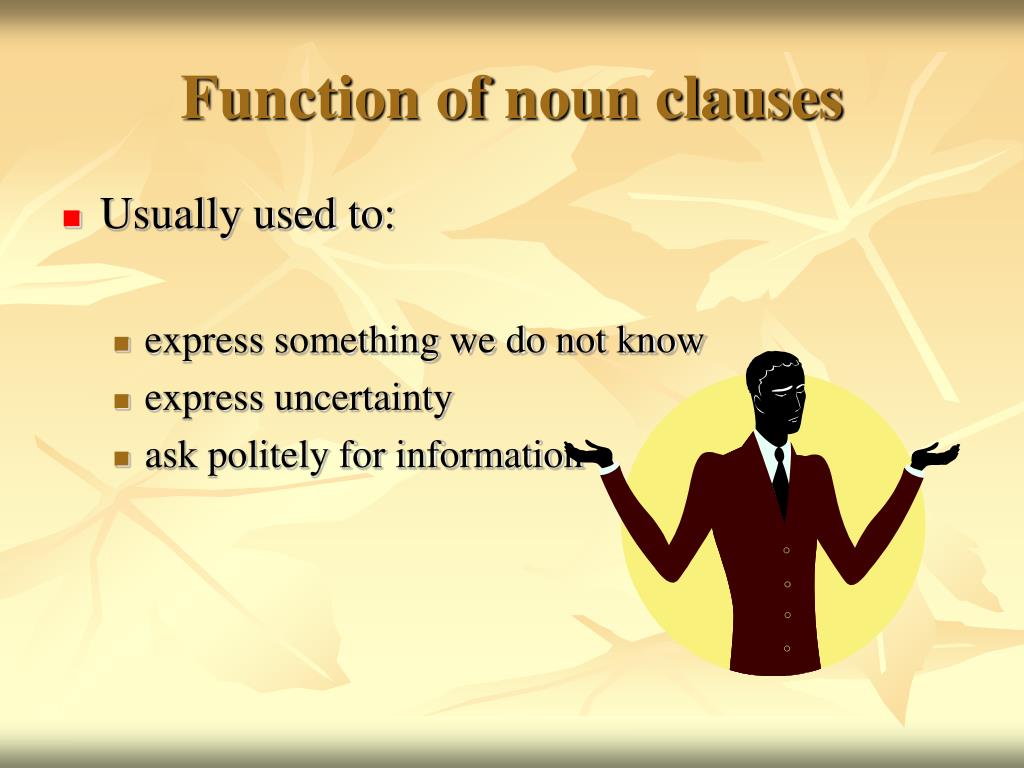
PPT Noun Clauses PowerPoint Presentation, free download ID4837151
PPT Explanation of Defining and non-defining relative clauses + relative pronouns + steps to join two sentences into 1 relative clauses. I hope you will find it useful. My. 7870 uses angkosm relative pronouns and relative clauses

PPT Noun Clause PowerPoint Presentation, free download ID2653857
Noun clauses describe something about the verb or the sentence. We use who, what, which, whose, whoever, whatever, when, where, why, whether, how and that in noun clauses. Examples: Do you know what the teacher said? We don't know who they are. Do you know what the time is? Mia told him that she would go out. Noun clauses as a direct object:
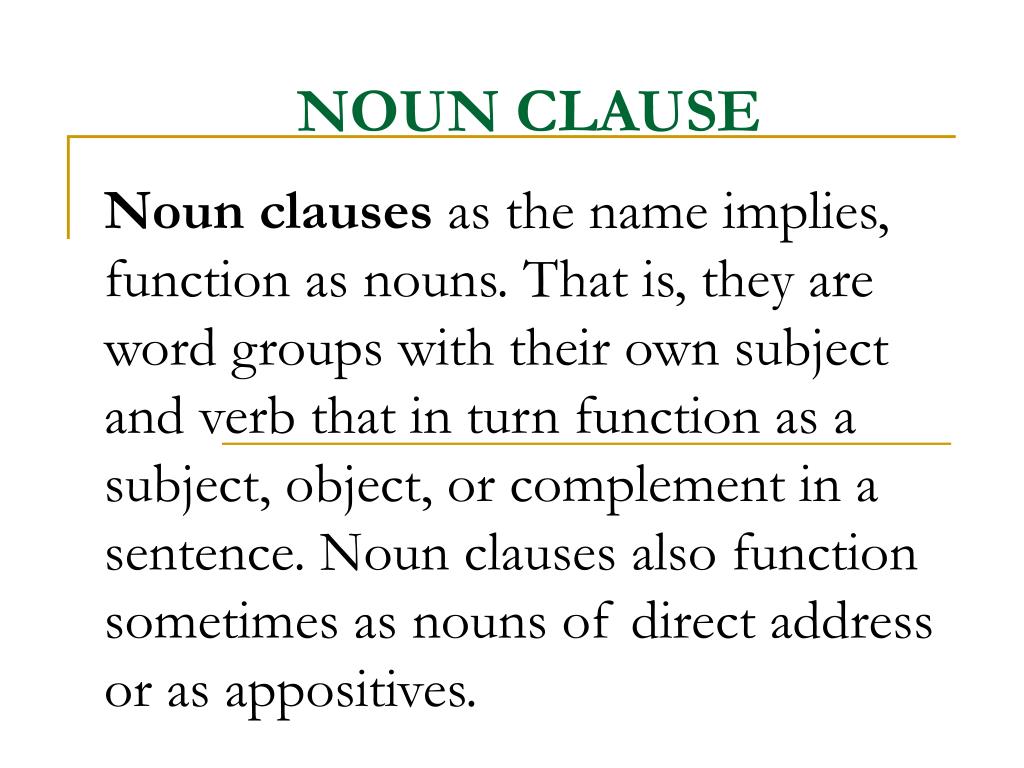
PPT NOUN CLAUSE PowerPoint Presentation, free download ID5315294
To create an adjective clause: Choose a noun in one sentence that can be described by information in the other sentence. Create a fragment from one of the sentences that describes the chosen noun (Be sure it has a subject and a verb). Start the clause with an appropriate relative pronoun. Insert the clause AFTER the noun it describes.
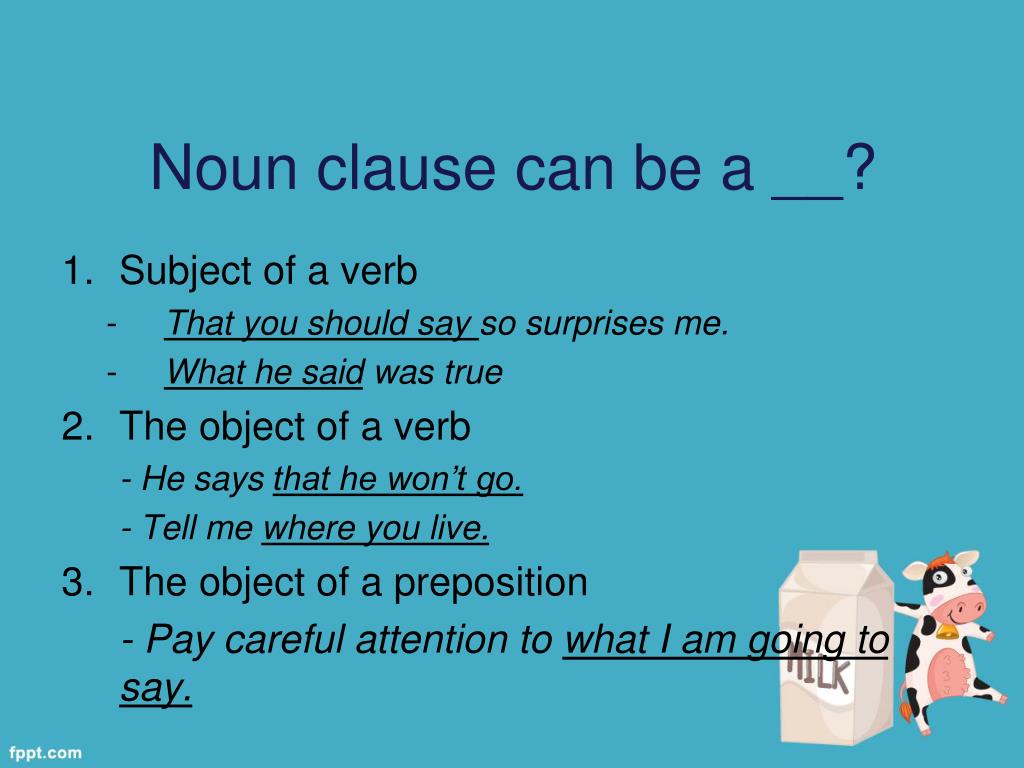
PPT NOUN CLAUSES PowerPoint Presentation, free download ID5915511
What are noun clauses and how can you use them to improve your English? This is actual a simple part of the English language and this PPT can teach you how and why we use noun clauses in a sentence. See http://www.ted-ielts.com for more free grammar lessons. David Wills Lecturer at University of Worcester Recommended Noun clause by
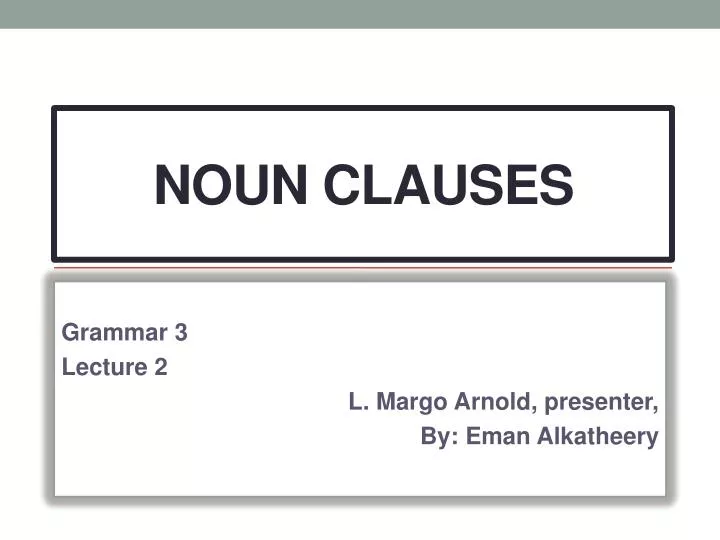
PPT Noun Clauses PowerPoint Presentation, free download ID4686708
A noun clause is a dependent clause that works like a noun. You can find it as a subject or object. noun clause • I read what she wrote. noun clause • What she wrote is interesting. fNoun Clauses Beginning with Question Words Wh- clauses begin with words like who, what, how, whenever, which, etc.

PPT Noun Clauses PowerPoint Presentation, free download ID4632511
It starts off asking what a noun is, then a clause, and from there it explains noun clauses. It makes use of some valuable examples and then concludes with a short test. If you like it, follow me on Slideshare and give it a like. A Guide to Noun Clauses from David Wills. Previous ESL Speaking and Listening for David Epstein's TED Talk.

Presentation 8 noun clauses & embedded questions
This is a short 8 slide practice Powerpoint on noun clauses. Students will learn how noun clauses are dependent or subordinate clauses, and signal words to look for when identifying noun clauses. Explains how noun clauses can act as a subject in a sentence, or as a direct object. Practice sentences for students to work with.
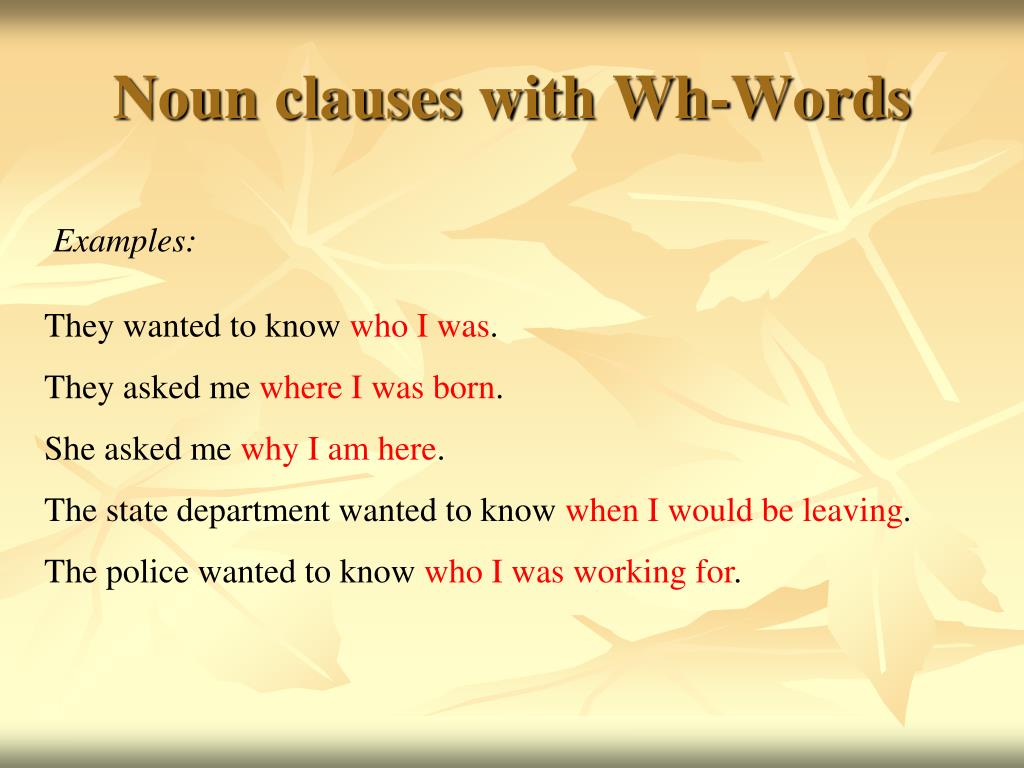
PPT Noun Clauses PowerPoint Presentation, free download ID4837151
Function of noun clauses • Usually used to: • express something we do not know • express uncertainty • ask politely for information Remember: • The noun clause acts like a noun: it's a subject or an object in a sentence. • The noun clause, like other dependent clauses, must have a subject and a verb.
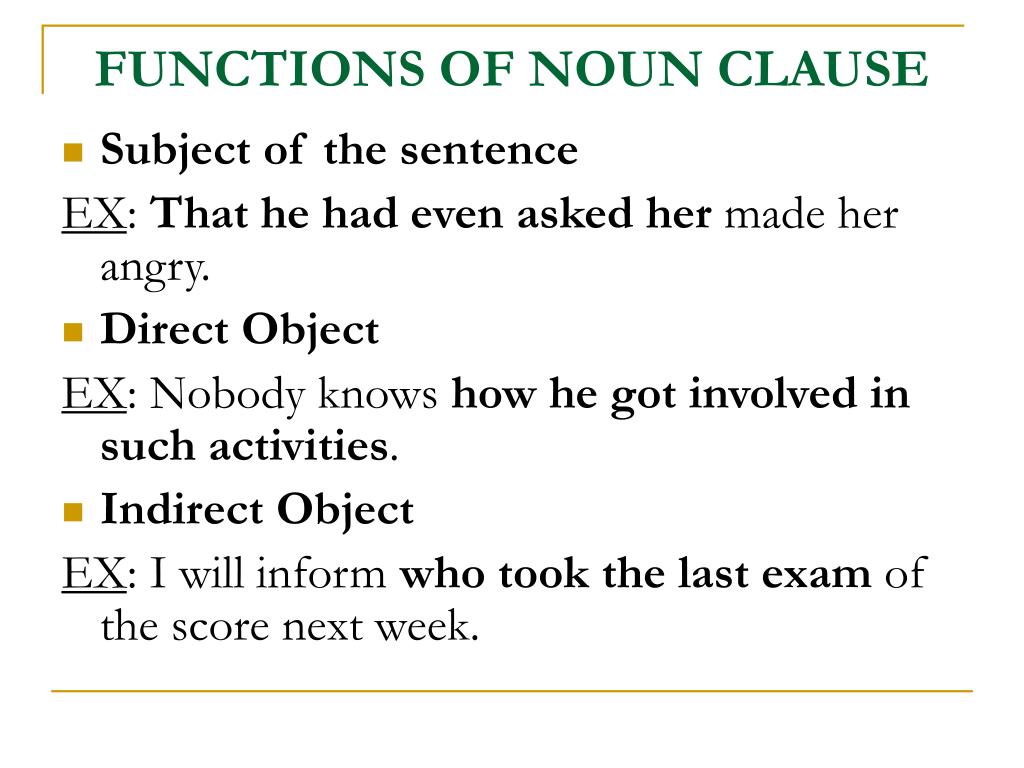
PPT NOUN CLAUSE PowerPoint Presentation, free download ID5315294
Recommended Power point noun clause & phrase Fitriyana Rahma Past perfect paly2h Direct & indirect objects ktrefz Prepositions David Nicholson Verbs with 'To'-infinitive or '-ing' Clauses theLecturette Finite and non finite verbs jayaenglish What's hot (20) Grammar: Clauses Recently uploaded (20) It's Time to Exercise Thinking.pptx

Noun Clauses (1).ppt Clause Sentence (Linguistics)
3. Indirect Object. Noun clauses can also act as indirect objects of the verb in the independent clause.. For example: She chose to photograph whomever was willing to pose for her.; In the sentence above, the direct object of the verb chose is the infinitive phrase to photograph. Just like a noun clause, this infinitive phrase is acting like the noun direct object.
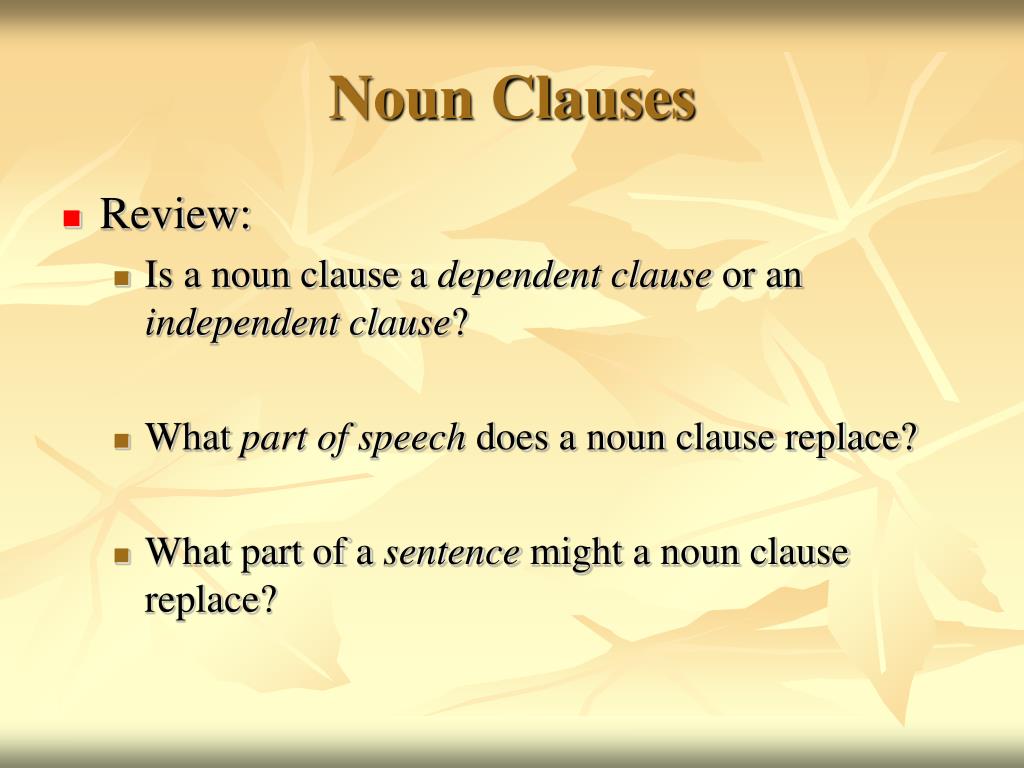
PPT Noun Clauses PowerPoint Presentation, free download ID4837151
A PPT Guide to Noun Clauses. The PPT attached below is a free learning tool I developed for my own students that I think pretty much covers everything you need to know about noun clauses in a simple way. A Guide to Noun Clauses from David Wills. Share: Previous A Complete Guide to the Future Tenses (for IELTS)

PPT Noun clause PowerPoint Presentation, free download ID2772542
A noun clause is a clause that plays the role of a noun. For example (noun clauses shaded): I like what I see. (Like all clauses, a noun clause has a subject and a verb. In this example, the subject of the clause is "I" and the verb is "see.") I know that patience has its limits.

PPT Noun Clauses PowerPoint Presentation, free download ID5903564
Noun clauses after verbs that show importance or urgency : advise forbid recommend ask insist require beg order suggest urge request demand. 18. Some expressions that show importance or urgency : It is advisable It is essential It is imperative It is important It is necessary It is urgent. 19.

PPT Noun clause PowerPoint Presentation, free download ID3842696
A bundle is a package of resources grouped together to teach a particular topic, or a series of lessons, in one place. Bundle CLAUSES - POWERPOINT PRESENTATIONS - BUNDLE This bundle of 5 products (PowerPoint Presentations) is perfect for teaching Clauses - Noun Clause, Adjective Clause, Adverb Clause and Relative Clause.
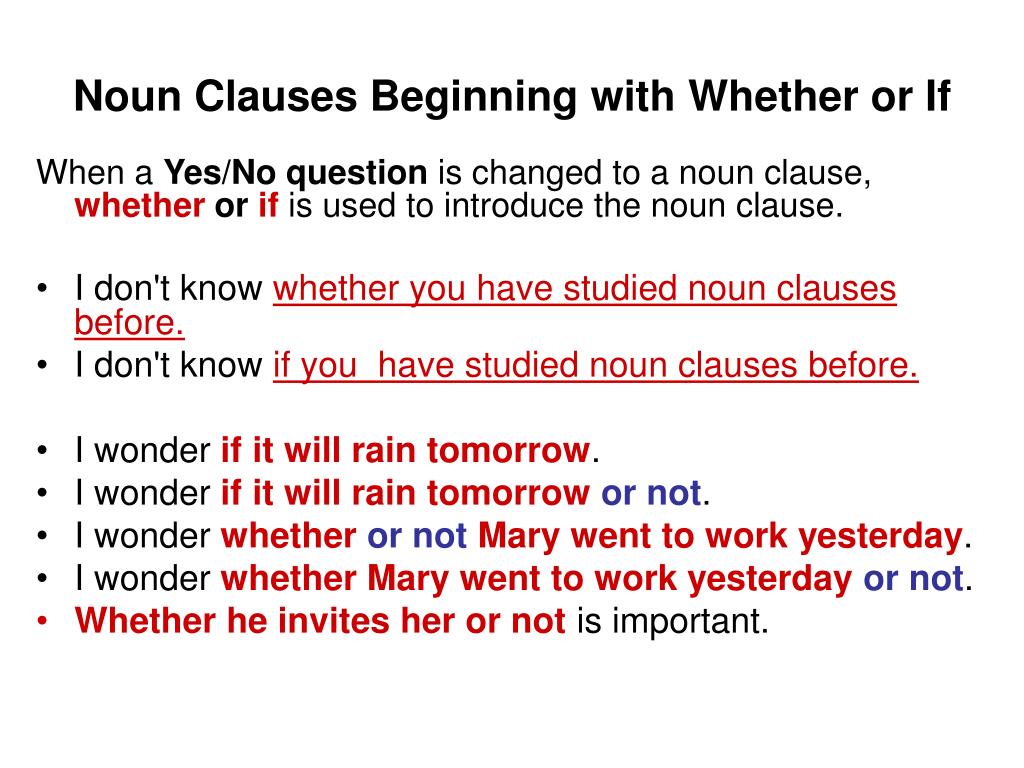
PPT Noun Clauses PowerPoint Presentation, free download ID4632511
A noun clause has a subject and verb. It is used as the subject or object in a sentence. A noun clause is a dependent clause that works like a noun. You can find it as a subject or object. I read what she wrote. What she wrote is interesting. Some are internal: Fears, Worries, etc. NouN Clause
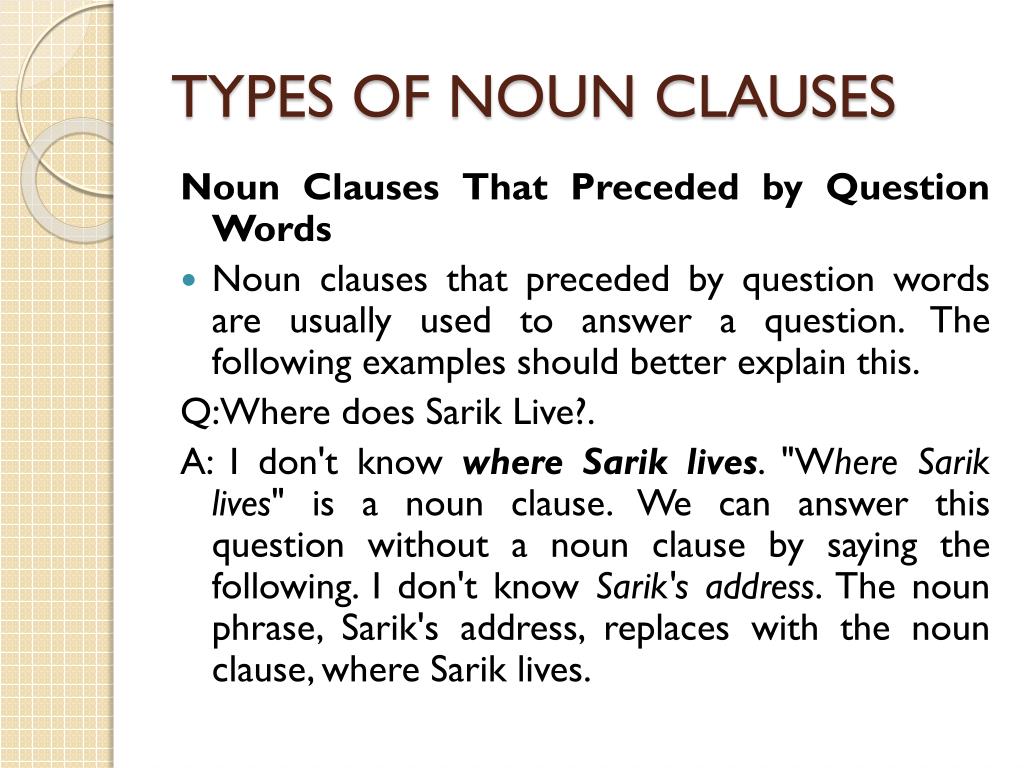
PPT NOUN CLAUSE PowerPoint Presentation, free download ID1990758
Presentation Transcript. Noun Clauses A clause is a structure that has a subject and a verb. There are two kinds of clauses: independent and dependent. An independentclause is a main clause and expresses a complete thought. It is a sentence. A dependent clause is not a complete sentence. It must be part of an independent clause.